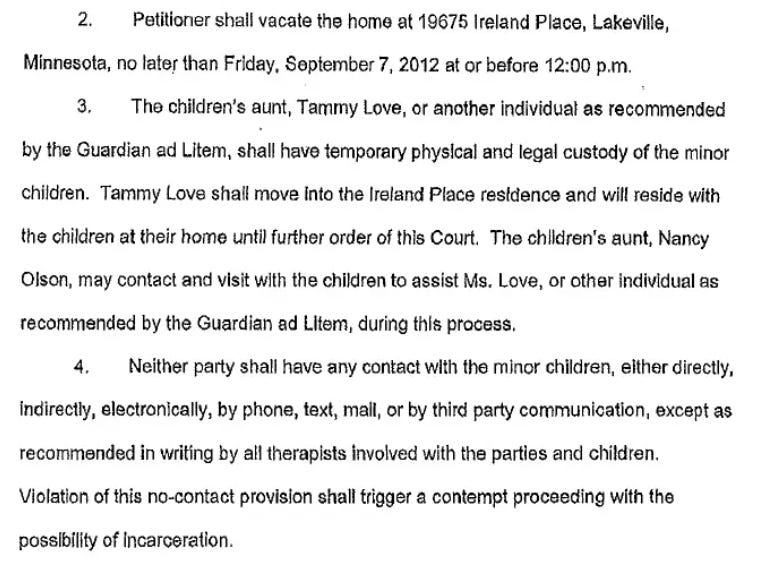The momentum for family court reform continues.
Richard Luthmann and I previously interviewed Arizona Republican State Senator Mark Finchem and Arizona Republican State Representative Rachel Keshel, who head the ad hoc joint legislative committee on family court orders.
This time we sat down with Idaho Republican State Representative Tammy Nichols, who co-chairs the Idaho Child Custody and Domestic Relations Task Force, which had its first hearing on July 7, 2025.
This interview covered many topics, including my belief that Meridian, Idaho Police Chief Tracy Basterrechea made a serious misstatement when he claimed custodial interference, which is a crime, is a civil matter in the last hearing.
Everyone should check out the whole interview, but for the summary, I want to focus on some of the best legislative ideas she proposed during the interview.
An Anti-SLAPP like system for false allegations
State Senator Nichols said that a big problem is false allegations, but there’s never any consequences.
She talked about legislation to hold false allegations of abuse accountable.
At that point, I interrupted her.
While well-meaning, I worry about such a law creating a chilling effect on people reporting abuse.
How would she balance that, I asked her.
Senator Nichols said she envisioned an anti-SLAPP like system which identifies the especially egregious false allegations and creates a system to quickly deal with those.
SLAPP, or Strategic Lawsuit Against Public Participation, is a lawsuit like the one filed by Jeremy Hales that is meritless and designed to chill free speech.
In anti-SLAPP legislation, someone targeted with a SLAPP suit can file an anti-SLAPP motion and a hearing is held quickly.
At that point, the plaintiff has to meet a minimum threshold of evidence, or the case is thrown out.
This legislation would work the same way. If this anti-SLAPP like motion was filed, a hearing is held quickly, and the alleged false accuser would present evidence which would need to meet a minimum threshold.
If it doesn’t, that person would be deemed a false accuser, with real consequences.
Parent’s right to a speedy trial
At another point in the interview, State Senator Nichols talked about how cases could go on for years. She said that there needs to be a time limit.
While she never used the term, I asked her if she was suggesting a parent’s right to a speedy trial, just like the sixth amendment protects criminals
This is what she was talking about. This is something I’ve already proposed.
Child custody cases have a way of dragging out, and the courts love it.
Lawyers make money, other court appointees make money: it’s how the system works.
Courts will not speed up the process by choice, only by force.
As such, upon reading that passage above, I had an epiphany.
Courts should be required to hold a custody trial no more than one year after the petition is filed.
I’ve since amended my thought process because parents like to avoid service. So, I would propose a law which requires a custody trial to start no more than a year after the initial petition is served.
Time limits on temporary orders

Senator Nichols identified a problem with Arizona State Senator Mark Finchem and Arizona State Representative Rachel Keshel have also been hammering away at.
Draconian temporary orders, which last years.
Temporary orders can’t be appealed, but they are abused my many judges, like Judge David Knutson in Minnesota who issued the order above temporarily banning both parents from seeing their kids.
That lasted from September 7, 2012 to April 19, 2013, when he issued another temporary order, this time only banning the mother from seeing her kids.
Senator Nichols wants to put a time limit on temporary orders.
Cap on expenses
During the broadcast, I mentioned, “I think we’re all free marketeers, but is a solution putting a hard cap on expenses?”
This was something that Senator Nichols said she favored.
“Putting a cap on things, and maybe the number of times something can be used.” She told us.
Senator Nichols then went on to state that she heard people were ordered to have up to six psychological evaluations.
Limiting the number court appointees is something I favor as well; however, I don’t believe it goes far enough.
I think a total abolition of all court appointees is necessary for true reform in the system. This is the law I’d write.
In the State of Idaho, the court shall not appoint a guardian ad litem, parenting time evaluator, psychological evaluator, or any other court appointee. During divorce and child custody, the court shall only hear from the two parents, their attorneys if they have one, and any witnesses and evidence the parties may introduce.
We also debated the merits of presumed 50/50, which Rich favors but I don’t. Idaho has a vaguer standard.
In Florida, Rich’s home state, there is 50/50 presumption.
As I’ve said, this is a model which failed in Australia, and that country reversed the law in 2023. Australian Member of Parliament Graham Perrette had the best argument against presumed 50/50.
Check out the previous interviews with Senator Finchem and Representative Keshel below.






















Share this post